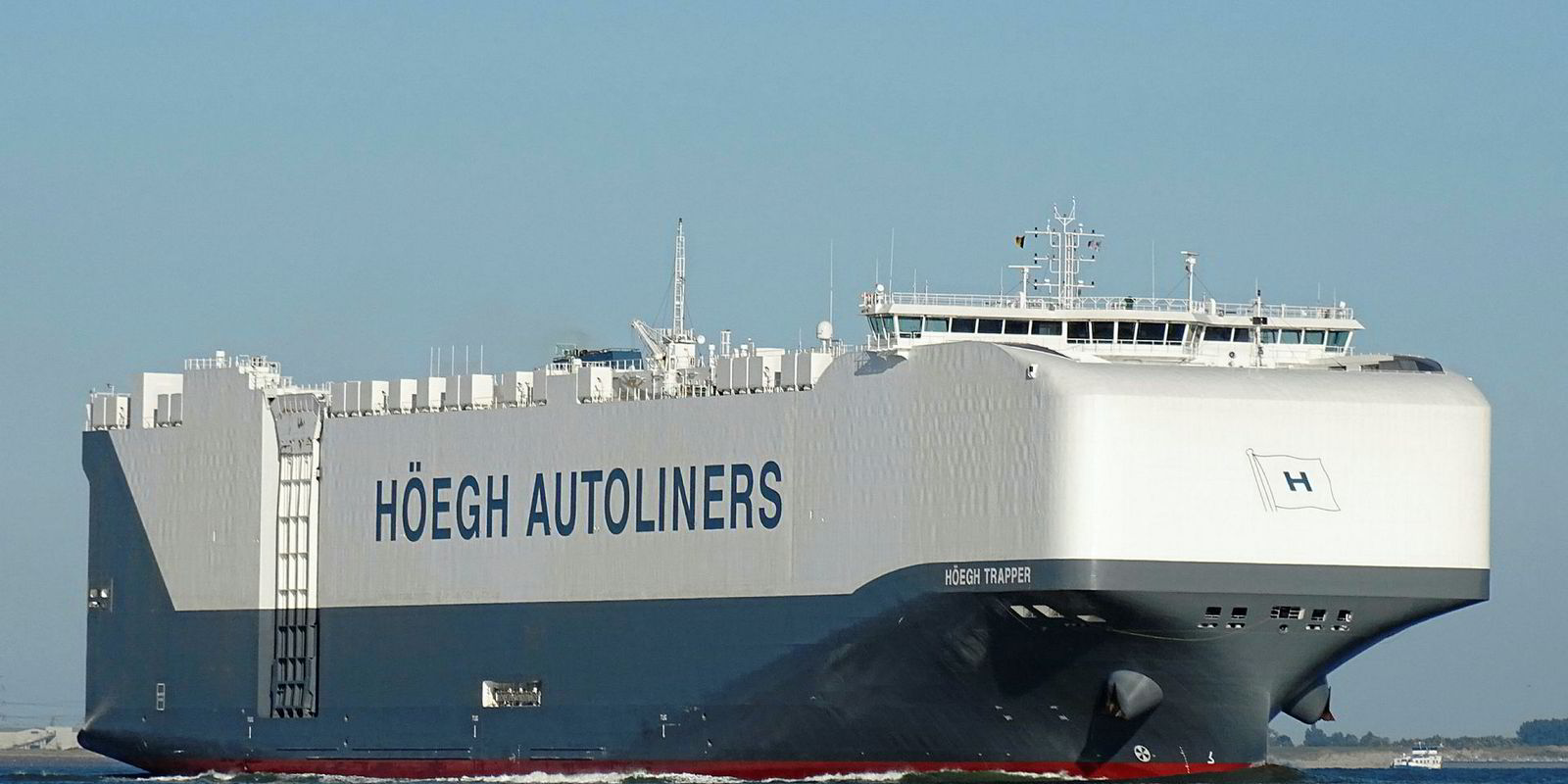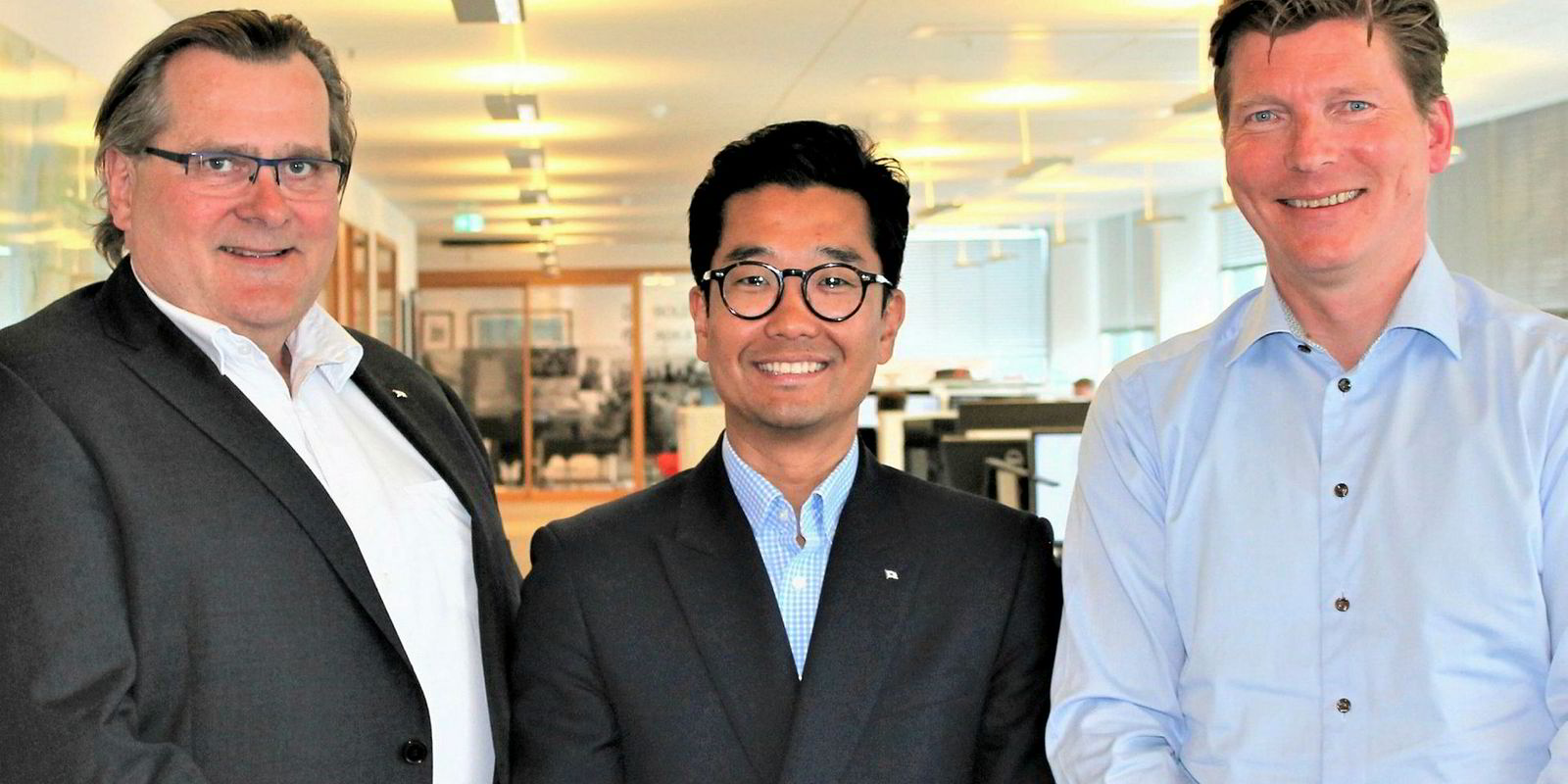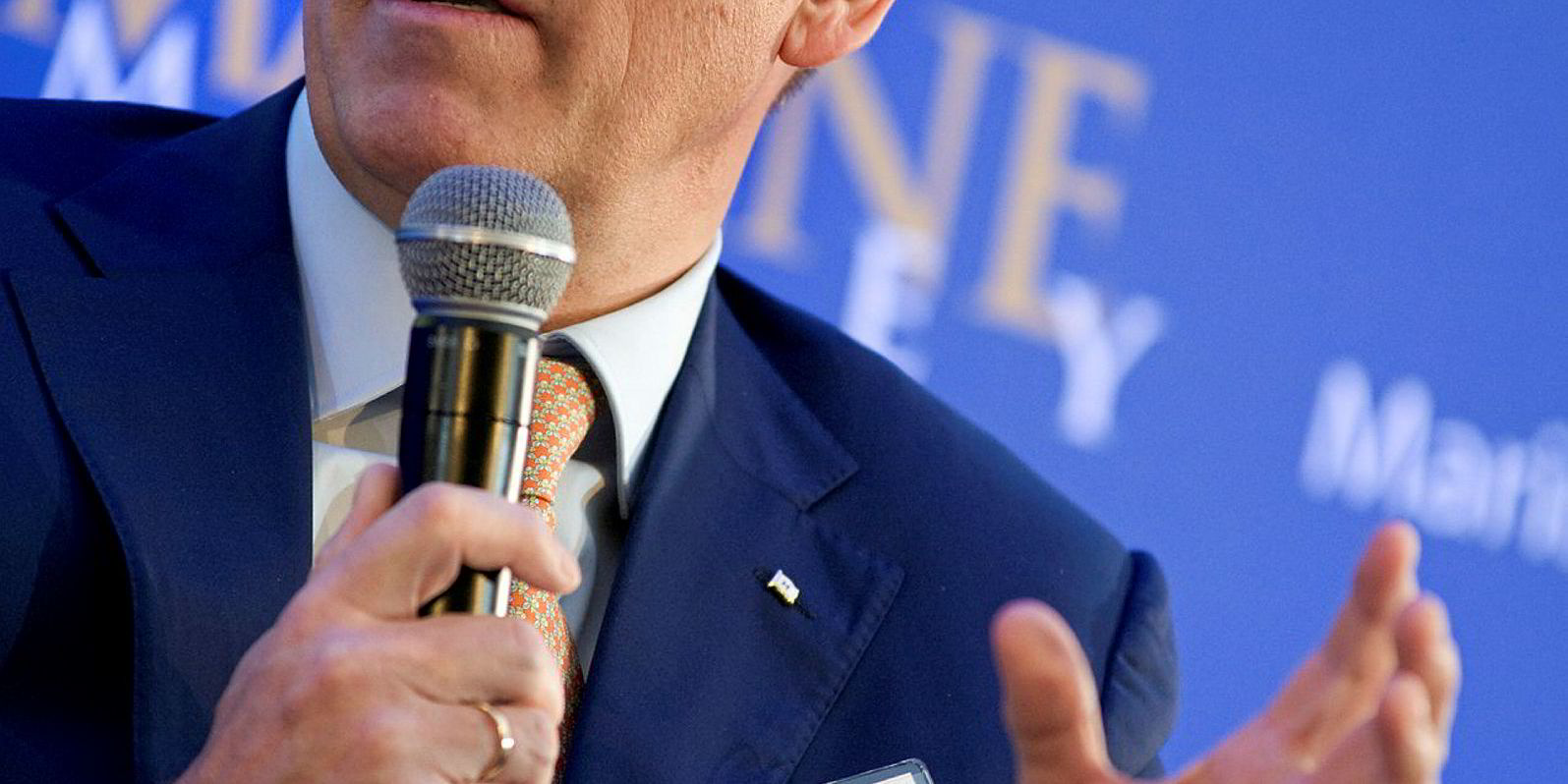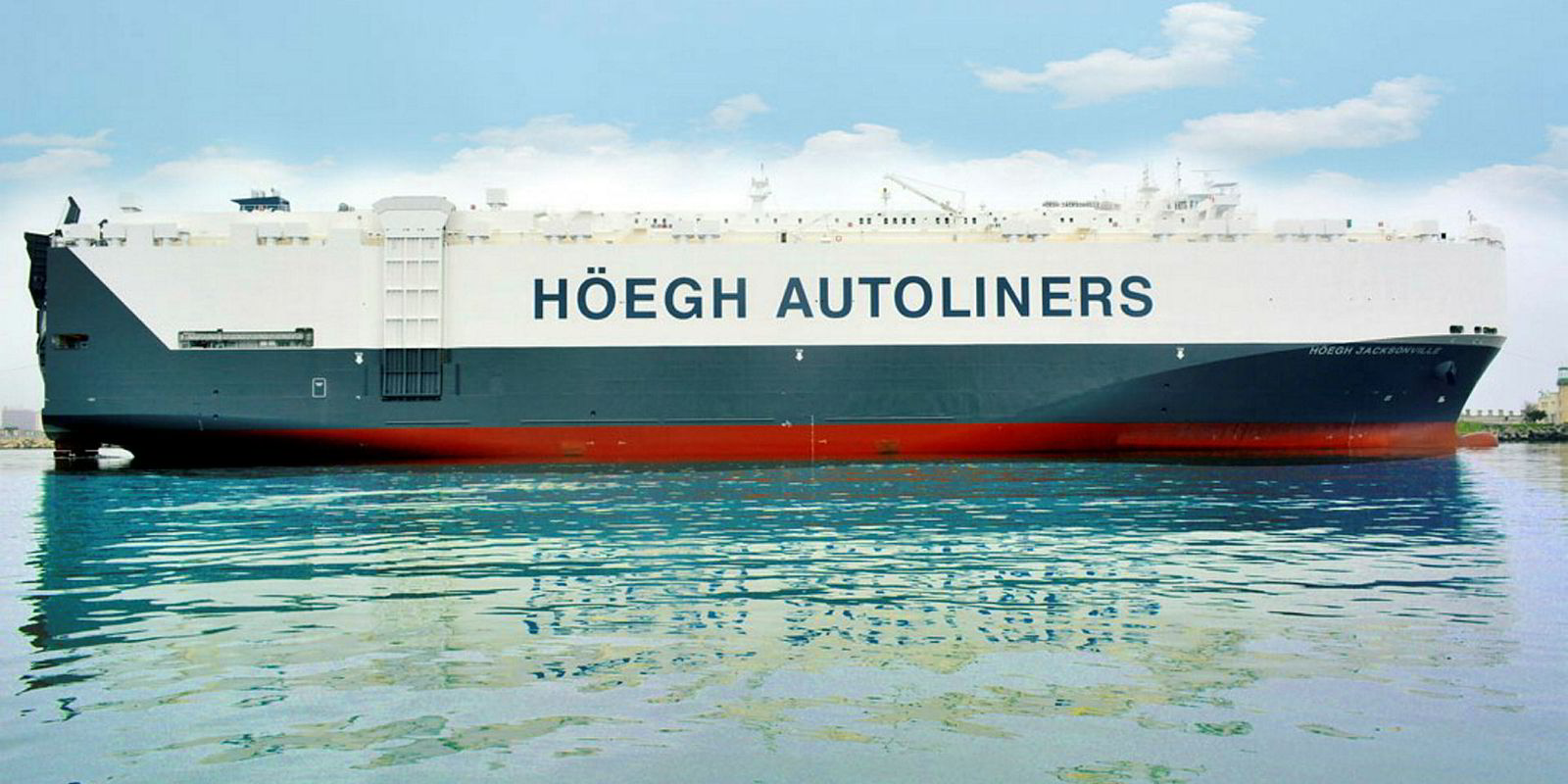Hoegh Autoliners has begun cleaning its vessels bunker tanks in preparation for the switch to low sulphur fuels eight months ahead of the IMO 2020 start date.
The Norwegian car carrier specialist has a fleet a fleet of 55 vessels, 40 of which are under Höegh’s own operational management.
The shipowner says this has resulted in a “substantial amount of bunker tanks” that needs to be prepared for compliant fuel.
“For us in Hoegh, 40 vessels entails over 450 bunker tanks that must be cleaned according to IMO’s guidelines before end of 2019. This is a huge job,” says Geir Frode Abelsen, head of technical operations in Hoegh Autoliners, who is responsible for getting the fleet ready for IMO 2020.
“Each tank will be cleaned twice according to a set method, before we can be sure that there is no residual from Heavy Sulphur Fuel left in them. This work has already started on board our vessels.”
In addition to getting the vessels ready for the new fuel, the Hoegh Autoliner’s bunker department follows the development on where compliant fuel will be made available.
“There is still uncertainty connected to whether smaller bunker ports will have enough compliant fuel as we move in to 2020,” says John Nilsen, bunker purchasing manager.
“This is something we expect the refineries to show the shipping industry a solution to, before the new regulations take effect.”

In all of its commercial departments around the world, Hoegh Autoliners says it people are now also working to secure that our customers are ready for the change.
“As we approach the end of 2019, we expect all commercial contracts to reflect the new compliant fuel,” said Håkon Kiil, head of business analytics who is leading Hoegh’s IMO 2020 implementation group.
Earlier this month Hoegh Autoliners chief executive Ivar Myklebust said he stood by his decision not to install scrubbers.
No scrubbers have been ordered and none will be, he said in comments posted on the website of the Norwegian outfit, one of the world’s largest car carrier companies.
He said it appears that more ports will follow the likes of Shanghai and Singapore in implementing bans on open loop systems and the Port of Fujairah, which has forbidden the discharge of wastewater containing sulphur.
“Considering that each of Hoegh Autoliners’ vessels spend 60 to 70 days in port annually, often in areas where scrubbers are banned, it makes little sense for us to invest in scrubbers,” said Myklebust.
In addition he said structurally, PCTCs are also not ideal for scrubbers, with some vessels 14 decks high, it is challenging to put in a scrubber that should go from the engine room up through the whole vessel to the chimney.
“According to fresh data from DNV around 4.6% of the global fleet will be fitted with scrubbers by the end of 2021,” said Arctic Securities.
“Looking at the different vessel segments, the numbers are indicating that ~10% of the dry bulk fleet, ~10% of the container fleet and ~21% of the crude oil tanker fleet will have a scrubber by the end of 2021.
“This means that we will have the vast majority of the vessels switching to low-sulphur compliant fuel, and we expect supply to be reduced on the back of scrubber installations, slow-steaming and cleaning of tanks, starting already this year.”





